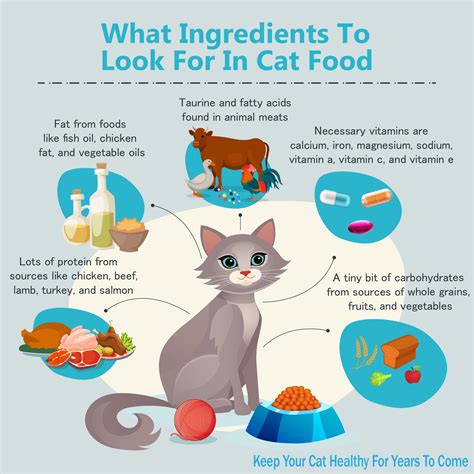Introduction
The well-being of our feline companions is paramount, and their mental health and nutrition play a crucial role in ensuring their overall happiness and longevity. In this comprehensive guide, we delve into the intricate relationship between these two vital aspects of cat care, providing scientifically backed information to empower cat owners with the knowledge to optimize their furry friend’s health and well-being.

Mental Health
Importance of Mental Well-being
Mental well-being is just as important for cats as it is for humans. A healthy mental state promotes positive behaviors, reduces stress, and allows cats to lead fulfilling and enjoyable lives. Neglecting their mental health can lead to a host of physical and behavioral issues that can significantly impact their quality of life.
Common Mental Health Issues
Cats can experience various mental health challenges, including:
- Anxiety: Characterized by excessive fear, nervousness, or pacing
- Stress: Caused by environmental changes, social interactions, or illness
- Depression: Signs include lethargy, decreased appetite, and withdrawal
Causes of Mental Health Issues
Mental health problems in cats can stem from:
- Environmental factors (e.g., lack of enrichment, changes in routine)
- Genetic predispositions
- Medical conditions (e.g., thyroid issues)
- Behavioral problems (e.g., aggression, fear of strangers)
Nutrition
Importance of a Balanced Diet
A nutritious diet is the foundation for both physical and mental well-being in cats. Providing your feline friend with the appropriate nutrients helps maintain their energy levels, promotes healthy digestion, and reduces the risk of chronic diseases.
Essential Nutrients
Cats have specific nutritional requirements that must be met through their diet. These include:
- Protein: for muscle growth and maintenance
- Taurine: an amino acid essential for heart and eye health
- Arachidonic acid: a fatty acid important for skin and coat health
- Vitamins and minerals: vital for overall health and well-being
Common Nutritional Deficiencies
Improper nutrition can lead to a range of health issues in cats, including:
- Obesity: Excessive body weight due to calorie intake exceeding energy expenditure
- Nutritional deficiencies: Lack of essential nutrients, such as taurine or arachidonic acid
- Digestive problems: Issues with digestion and absorption of nutrients
The Link Between Mental Health and Nutrition
Research has shown a strong correlation between mental health and nutrition in cats. Here’s how they are interconnected:
- Stress and Diet: Stressful events can affect a cat’s appetite and nutrient absorption.
- Nutritional Deficiencies and Mood: Deficiencies in essential nutrients, such as taurine or tryptophan, can contribute to anxiety and depression.
- Obesity and Mental Health: Overweight or obese cats may experience decreased mobility, which can impact their mood and overall well-being.
Strategies for Optimal Cat Health
Addressing Mental Health
* Provide a stimulating environment with plenty of toys, scratching posts, and hiding places.
* Establish a consistent routine for feeding, playtime, and interaction.
* Minimize stress by reducing environmental changes and providing safe spaces.
* Consider pheromone diffusers or anxiety-reducing medications if necessary.
Ensuring Proper Nutrition
* Feed your cat a high-quality diet specifically formulated for their age and activity level.
* Consult with your veterinarian to determine the appropriate calorie intake.
* Provide access to fresh water at all times.
* Avoid feeding table scraps or human food, which may not meet their nutritional needs.
Common Mistakes to Avoid
- Ignoring Behavioral Changes: Subtle changes in behavior may indicate underlying mental health issues that should be addressed.
- Changing Diet Too Abruptly: Sudden dietary changes can upset a cat’s digestive system.
- Overfeeding or Underfeeding: Ensuring appropriate calorie intake is crucial for maintaining a healthy weight.
- Skipping Veterinary Check-ups: Regular veterinary exams help detect and prevent health problems, including those related to mental health and nutrition.
FAQs
1. How can I tell if my cat is mentally healthy?
Signs of a mentally healthy cat include a balanced appetite, playful behavior, and positive interactions with others.
2. What is the best way to feed my cat?
Free-feeding is generally not recommended. Instead, divide their daily food into two or three smaller meals.
3. Can stress in cats lead to physical health problems?
Yes, chronic stress can weaken a cat’s immune system and increase their susceptibility to infections and other health issues.
4. How do I know if my cat has a nutritional deficiency?
Signs of nutritional deficiencies include changes in hair or skin health, digestive problems, and decreased energy levels.
Conclusion
Understanding the interconnectedness of cat mental health and nutrition empowers us to provide our feline companions with optimal care that supports their overall well-being. By addressing both aspects simultaneously, we can create a fulfilling and healthy life for our furry friends, ensuring they enjoy long and happy years by our side.
Additional Resources
- American Veterinary Medical Association: Caring for Your Cat’s Mental Health
- The Cat Fanciers’ Association: Cat Nutrition
- Cornell University College of Veterinary Medicine: Cat Health and Nutrition
Tables
Table 1: Common Mental Health Issues in Cats
| Condition | Symptoms |
|---|---|
| Anxiety | Excessive fear, nervousness, pacing |
| Stress | Changes in appetite, licking, increased vocalization |
| Depression | Lethargy, decreased appetite, withdrawal |
Table 2: Essential Nutrients for Cats
| Nutrient | Function |
|---|---|
| Protein | Muscle growth and maintenance |
| Taurine | Heart and eye health |
| Arachidonic acid | Skin and coat health |
| Vitamins and minerals | Overall health and well-being |
Table 3: Common Nutritional Deficiencies in Cats
| Deficiency | Symptoms |
|---|---|
| Obesity | Excessive body weight |
| Taurine deficiency | Dilated cardiomyopathy, blindness |
| Arachidonic acid deficiency | Skin and coat problems |
Table 4: Effective Strategies for Cat Mental Health and Nutrition
| Mental Health | Nutrition |
|---|---|
| Provide a stimulating environment | Feed a high-quality diet |
| Establish a consistent routine | Ensure appropriate calorie intake |
| Minimize stress | Avoid sudden dietary changes |
| Consider pheromone diffusers or anxiety-reducing medications | Provide access to fresh water |





















